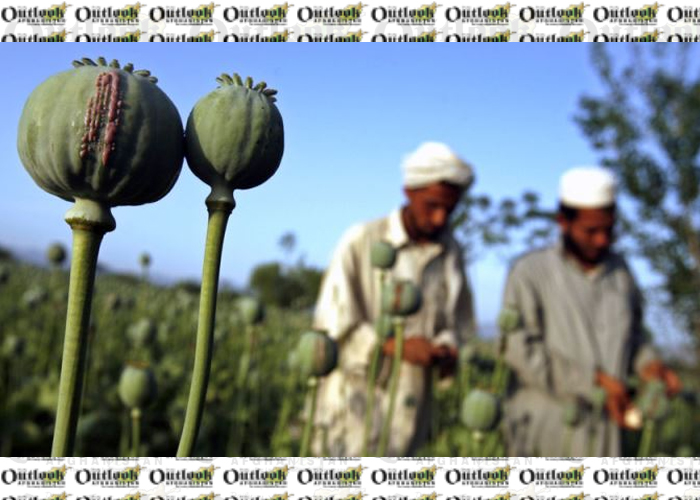Today, the 26th of June is observed as International Day against Drug Abuse and Illicit Trafficking. The United Nations General Assembly set this day through the resolution 42/112 in December 1987. The basic objective behind observing the day is to raise awareness, reinforce action and collaboration to attain the goal of an international society free of drug abuse. So, today is a good opportunity to renew our commitment to struggle against this evil phenomenon. Unfortunately, the struggle against drug Abuse and Illicit Trafficking has not been successful at the national and international level. At the international level, there are about 269 million addicted people around the world who spend 1.6 trillion$ per year while around 90% of their needs are produced in Afghanistan. However, there is no report for current year in Afghanistan but last year, according to UNODC, it produced 6300 tone narcotics in 2020 with 37% increase than 2019 and far more than the amount produced in the years 2000, 2001, 2002, and 2003.
Given the above facts and figures, drug addiction is one of the most important problems that challenge many countries of the world, especially weak countries such as Afghanistan. In Afghanistan, after security and administrative corruption, this is considered one the most ominous phenomenon that unprecedentedly expanded in the country so that all layers of society have been directly or indirectly affected and millions of people, including children, and women have been affected by the issues. In Kabul city, it becomes rampant and normal as hundreds of addicted people get together under the bridge of Pooli-Sokhta , Qutta Sangi, public parks, and other parts of the city while thousands of people including children cross from this crowded point bearing smell of drugs, cannabis and other types of drugs used in the area.
According to experts, terrorism, lack of serious fighting strategy, administrative corruption, illiteracy, unemployment, psychological pressure, and traveling are the main factors of addiction and its cultivation in the country. In addition, lack of regional cooperation and calibrations is another responsible factor in promoting narcotics cultivation and trafficking in Afghanistan. It means that the poppy cultivation and its trafficking in Afghanistan are interconnected to the national and international networks of organized crime with the supporters in the international drug market and national authorities who should otherwise be the protectors of the nation. The most disastrous facts are that they have their associations with the terrorist networks in the country. The rising insurgence and growing webs of terrorism depict clearly that terrorists have got immense financial support from drug trafficking. This should alarm the whole nation as it would shatter the lives of the people. It would not be difficult to control the situation if it was limited only to farmers but the fact is that the farmers are not alone to benefit from the rising prices and the rise in production; rather farmers take a negligible part of it while most of the income goes to the networks that manage its filthy business. And all the informed individuals know that the terrorist networks have a lion’s share in such income. Thus it implies that with the growth in the production of opium, there will be a considerable increase in insurgency from the terrorist networks that are already in the process of gaining strength. Moreover, it has also been observed that the cultivations mostly take place in the areas where the terrorist groups seem to have more control. It is believed that most of the cultivation is concentrated in southern Afghan provinces, and heartland of the Taliban-led insurgency, where the government does not seem to have much control. Anyway, no reason does divest our responsibility in fighting against cultivation and trafficking of narcotics. We must have a clear and serious strategy in fighting against narcotics cultivation and trafficking to prevent opium cultivation and also cleaning the cities and environment from the presence of drug users. If the current condition continues, it will not only increase the level of additions in the country but also expand the territory of cultivation and international mafia groups in the country. Therefore, we have to accept that drug addiction is farther more dangerous than we imagine. In the past, drug addiction was mostly limited to men who spent years as laborers or war refugees in neighboring countries, but in recent years; it has been normalized and involved thousands of youths, women, and children in the country. As women have a very specific role in family and society, they can seriously endanger the health and dynamics of society and they can rapidly pave the way for devastation of society. In conclusion, the increase in cultivation, production, and smuggling of poppy opium is not only a threat to Afghanistan but also to the region and to the world. We should note that the cultivation, production, and smuggling of poppy opium will not only feed the terrorist networks but also organized criminal groups inside and outside government bodies. We should also note that the consequence and risks of addiction are limited to physical issues but also other problems such as increasing violence, prostitution, psychological problem, cultural and economic problems, the spread of delinquency and unemployment, family conflicts and divorce, and even the disintegration of families. If we just imagine 3 million to 5 million addicts in Afghanistan, and 69 million addicts on a global level, these addicted people have also sisters, daughters, mothers, and spouses. So, how many Afghans will suffer from these issues? Certainly, a large percentage of people are directly and indirectly affected by this destructive and devastating phenomenon. Therefore, let’s renew our commitment to struggle against this evil phenomenon at a national and global level.
Home » Opinion » The world Day against Drug Abuse and its Implications in Afghanistan
The world Day against Drug Abuse and its Implications in Afghanistan
| Mohammad Zahir Akbari

